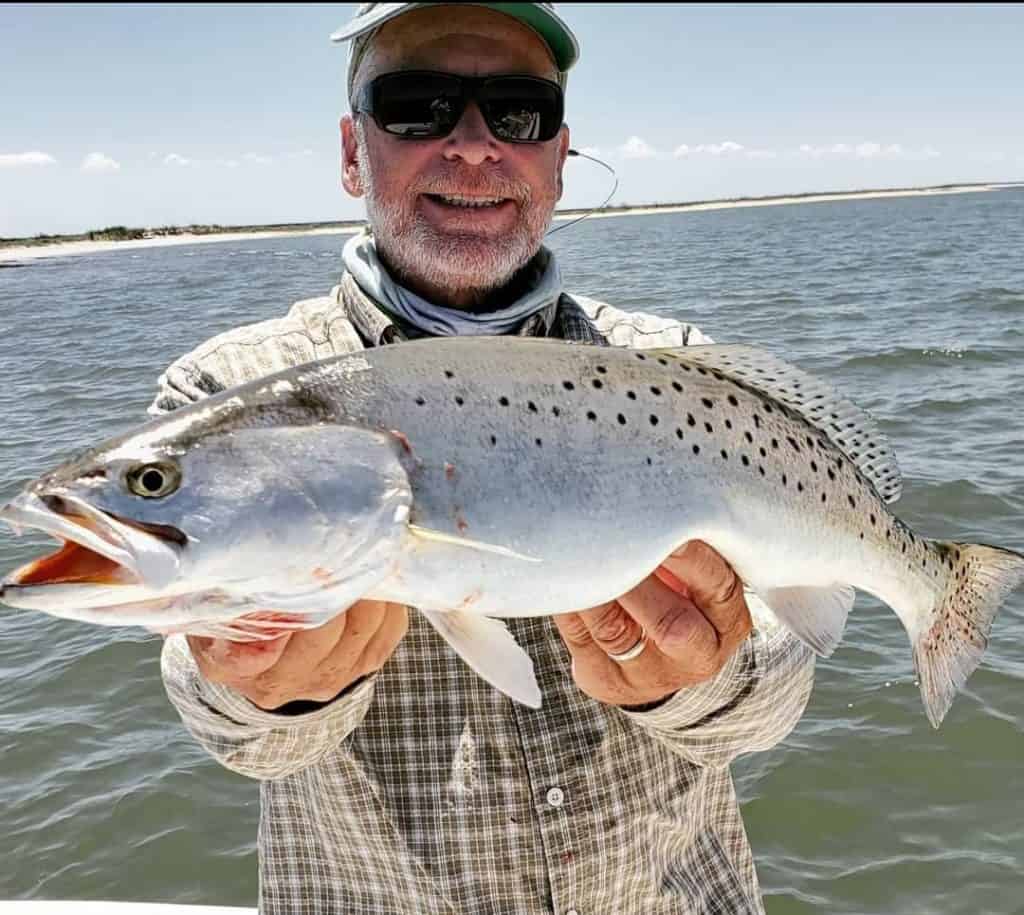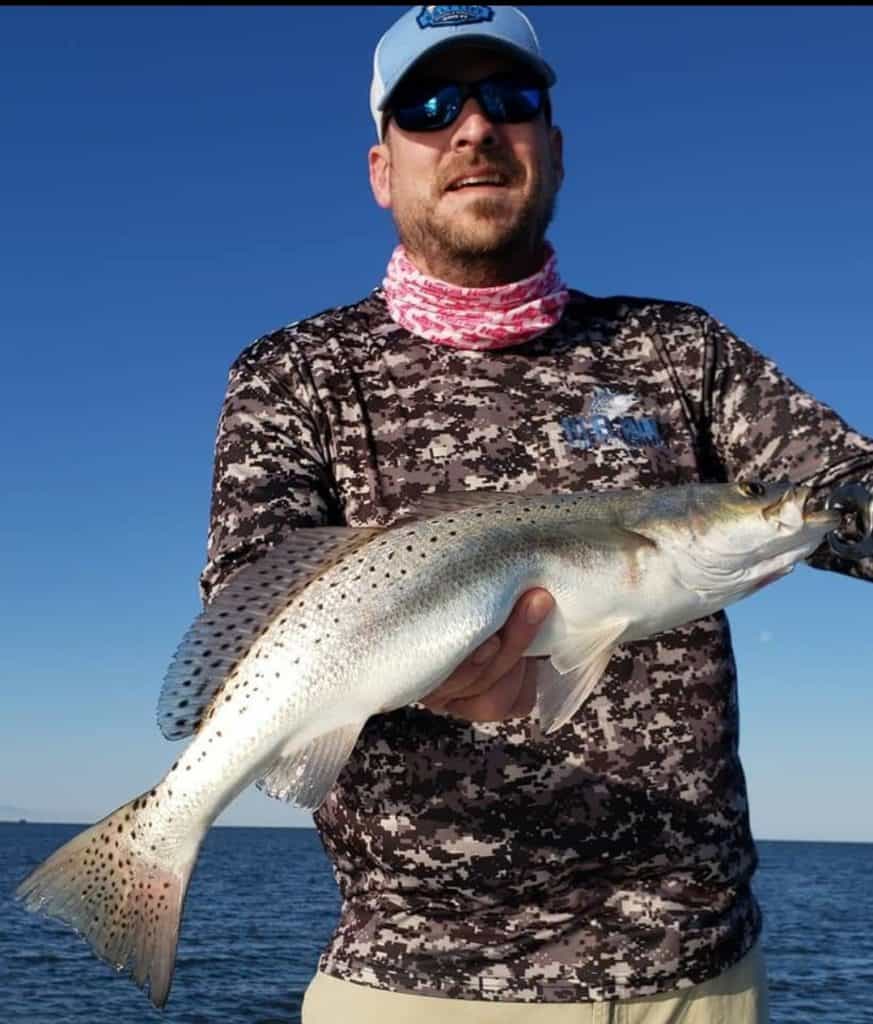Sporting Life
Spotted Seatrout, Shallow Water and a Promising Future
By Dennis Doyle
I was wading waist-deep one evening, just before dark near Thomas Point when the gorgeous ruffian hit. Expecting the reckless strike of a rockfish, I was immediately aware that this fish was different, the take felt cautious and I responded accordingly.
Throwing an eight-weight fly rod with a floating line, I had been fishing a 1/0, yellow over white Clouser minnow and swimming it near the bottom, methodically stripping the line in short bursts. I felt extra rewarded with the hook up, and definitely wanted to land the as yet unknown species.
Cinching up the fish carefully, I let it have its head as it jetted off to deeper water. It made a number of determined runs, letting me get the loose line floating around me on the reel and allowing the smooth drag on my old Billy Pate to wear the beast down rather than pressure from my clumsy fingers.
It was fortunate that I was so careful for the spirited fish soon broached and I identified it. Pronounced, iridescent black spots along a silvery, lavender-hued flank were evident in the last light of day and marked it as a spotted seatrout, one of the most handsome fish that visits the Chesapeake. The seatrout, however, is also known for a soft and fragile mouth (as well as a pronounced set of teeth) and my caution early in the battle turned out to be critical to its landing. As I lifted the hefty fish from the water, my fly fell free. It was to be a long time before I caught another in the area.
Climate change can mean many things, some good, some not so good, depending on one’s perspective. But a warmer Chesapeake will mean an eventual influx of more southern species and the spotted (or speckled) seatrout is one of the more desirable.
Earlier this year the spotted visitors once again arrived, this time in May and in unusually substantial numbers. Lingering mostly in more southern waters around Crisfield and the vast tidal flats of Tangier Sound they also traveled further north on up past Point Lookout at the mouth of the Potomac. Given another mild winter along the East Coast this year, the spotted beauties (specs to fans further south) may well become regular residents.
Recently I spoke with Orvis light tackle guide Chris Karwacki who has been increasingly focusing his efforts over the years on shallow water fly and light tackle angling for these crafty and singular fish. Karwacki launches from Crisfield (Somer’s Cove Marina) and cruises all the way to the Virginia border. He and his many clients have discovered that both specs and the local rockfish eagerly attack a well-presented streamer fly as well any manner of soft plastic, Bass Assassin-type clones cast on light to medium spin gear.
Karwacki fishes an immaculately maintained 23-foot Jones Brothers center console, the gold standard for shallow water adventure in Bay waters, and has been getting consistent action with multiple hookups of both trout and rockfish averaging 18 to 22 inches, an occasional spec over 26 or more (aka a gator), and more frequently, rockfish over 30 inches. He and his clients also tangle with some big bull redfish that often wander into the area. These are all trophy-sized fish in skinny water and truly sporting experiences to remember, so always check your drags.
DNR in a fortuitous act of recreational foresight a few years ago, enacted conservative limits on spotted seatrout (four fish of 14 inches minimum) for sport anglers plus establishing very limited commercial harvests. That was a directed effort to assist the species in establishing a consistent population in the Chesapeake, a goal that definitely deserves our thanks and appreciation.
Fishfinder:
A tough fishing season overall for 2020 is winding down as well as can be expected. There is a good rockfish chum bite about a mile north of the Sandy Point Light, another off of Love Point, Swan Point and occasionally a flurry of action down around the mouth of the Severn and at Thomas Point. Some excellent top water action is happening throughout the middle Bay on higher tide phases, early mornings and late afternoons near the shoreline structure at the trib mouths. mostly on the dark of the moon. Trollers are finding general rockfish success with medium to small bucktails on channel edges and the Bridge is holding some nice sized fish for live liners and soft crab anglers. Schools of snapper blues sometimes mixed with Spanish mackerel are still providing entertainment under the birds for anglers in open water throwing small, shiny metal lures with fast retrieves. Altogether it is a traditional fall scene on the Bay with the tasty addition and a spectacular end to the crabbing season, a deluge of big, fat and healthy jimmies. It’s going to be a long winter so get out there now.


